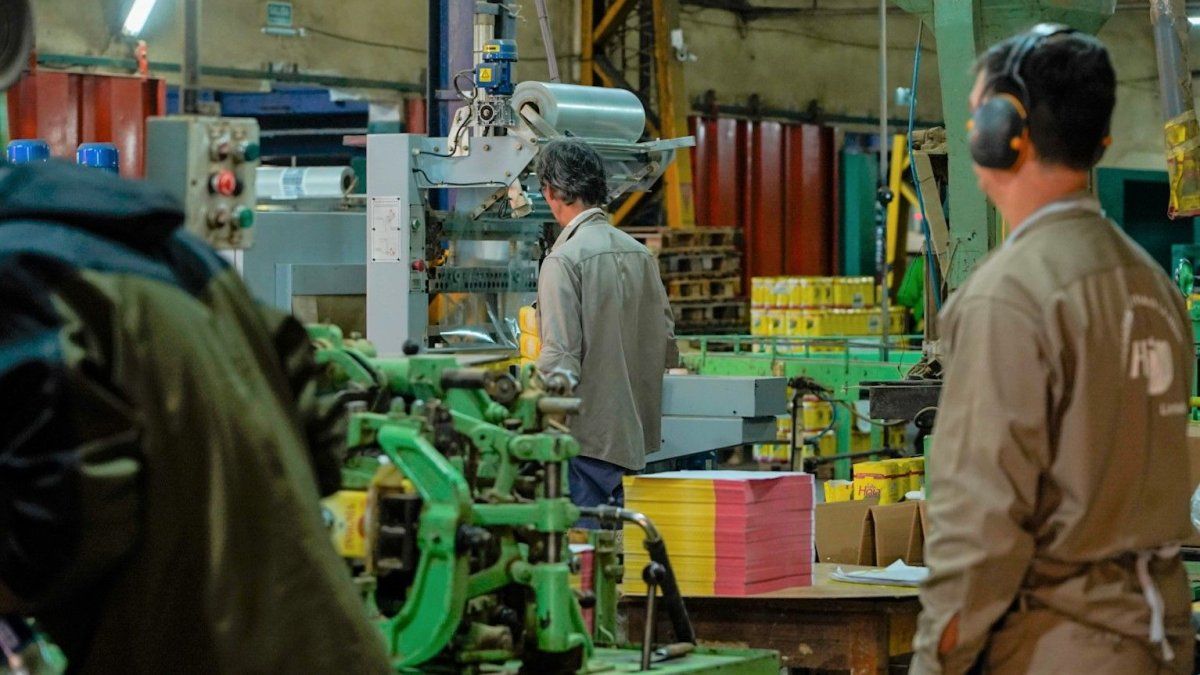One of the sectors most affected by the economic crisis continues to be the industrial sector: so far this year they have closed 16,500 SMEsas reported by the National Productive Front. The fall in domestic consumption, the increase in service costs and the difficulty in exporting due to an uncompetitive dollar were three of the factors that generated this worrying panorama. The CAME estimates a 13.2% drop in sales of SME businesses, an alarming figure that reflects the impact of the recession on consumption.
This data is complemented by the closure of 10,000 kiosks and stores and with the loss of 160,000 jobs in the sector. The crisis deepened in the second half of the year, according to the Association of National Businessmen and Businesswomen for Argentine Development (ENAC). Between July and October, other 6,500 companies stopped operatingadding to the 10,000 that had already closed in the first semester.
Recession: consumption falls and the closure of SMEs is worrying
The situation of small businesses is caused to a greater extent by the drop in the consumption of essential products. For example, beef registered a drop in 12.3% in sales in the first nine months of the yearaccording to a survey by the Chamber of Industry and Commerce of Meats and Derivatives of the Argentine Republic (Ciccra)reaching the lowest level in 26 years.
This combination of factors creates a vicious circle in which lack of sales leads to business closures, which in turn negatively impacts employment and consumption, further aggravating the recession.
Expectation in the industry due to the “SME Law”
Faced with this adverse panorama, businessmen insist on the need to approve a “SME Law” that implies fiscal relief and better conditions for the sector. At the moment, there were no responses in this regard from the Legislative Branch.
The only active interlocutor between the Government and the sector was the Chief of Staff, Guillermo Francos, who committed to work in an Incentive and Income Generation Regime (RIGI) for SMEs, a project that, according to businessmen, It seems difficult to come to fruition in the short term.
Meanwhile, President Javier Milei maintains an optimistic speech about the economy and stated that “The recession is over and the country has begun to grow.” In a recent event at the Argentine Chamber of Commerce and Services (CAC), Milei said that the economy will experience rapid growthalthough his words generated skepticism in the SME sector.
The data show that the Argentine economy continues on a path of contraction. In August, an interannual drop of 3.8% was recorded and, although it showed a slight advance of 0.2% compared to July, The accumulated figure for the year presents a decrease of 3.1%.
Source: Ambito
I am an author and journalist who has worked in the entertainment industry for over a decade. I currently work as a news editor at a major news website, and my focus is on covering the latest trends in entertainment. I also write occasional pieces for other outlets, and have authored two books about the entertainment industry.




